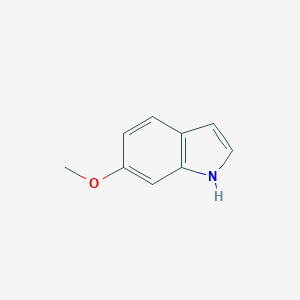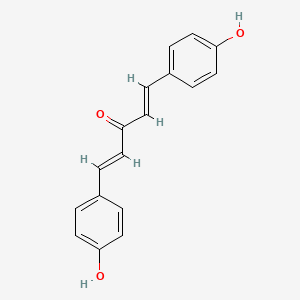-
Categories
-
Pharmaceutical Intermediates
-
Active Pharmaceutical Ingredients
-
Food Additives
- Industrial Coatings
- Agrochemicals
- Dyes and Pigments
- Surfactant
- Flavors and Fragrances
- Chemical Reagents
- Catalyst and Auxiliary
- Natural Products
- Inorganic Chemistry
-
Organic Chemistry
-
Biochemical Engineering
- Analytical Chemistry
- Cosmetic Ingredient
-
Pharmaceutical Intermediates
Promotion
ECHEMI Mall
Wholesale
Weekly Price
Exhibition
News
-
Trade Service
Proteins are essential nutrients for human health and have numerous applications in the chemical industry.
One popular method of obtaining proteins is through hydrolysis, which involves breaking down the protein molecule into smaller peptides.
Protein hydrolyzates are the resulting products of this process and have various applications in the chemical industry.
In this article, we will discuss the synthetic routes of protein hydrolyzates with a focus on pea protein hydrolyzates.
What are Protein Hydrolyzates?
Protein hydrolyzates are products obtained through the hydrolysis of proteins.
During hydrolysis, the protein molecule is broken down into smaller peptides, which consist of two or more amino acids.
Hydrolysis can be carried out using various methods, including enzymatic hydrolysis and chemical hydrolysis.
The resulting hydrolyzates can be used as functional ingredients in various applications, such as food and beverages, cosmetics, and pharmaceuticals.
Pea Protein Hydrolyzates
Pea protein hydrolyzates are a popular synthetic route for obtaining protein hydrolyzates.
Peas are an excellent source of protein and have numerous health benefits.
Pea protein is easily hydrolyzed, making it an ideal source of hydrolyzates.
The resulting pea protein hydrolyzates have a high nutritional value and can be used in various applications.
Synthetic Routes of Pea Protein Hydrolyzates
There are several synthetic routes for obtaining pea protein hydrolyzates, including enzymatic hydrolysis and chemical hydrolysis.
Enzymatic Hydrolysis:
Enzymatic hydrolysis is a popular method for obtaining protein hydrolyzates, including pea protein hydrolyzates.
The process involves using enzymes to break down the pea protein molecule into smaller peptides.
The enzymes used in this process are proteases, which are specific to breaking down protein molecules.
The enzymes are added to the pea proteins, and the hydrolysis process occurs at a controlled temperature and pH.
This process is gentle and results in a high-quality protein hydrolyzate with a high degree of hydrolysis.
Chemical Hydrolysis:
Chemical hydrolysis is another method for obtaining protein hydrolyzates, including pea protein hydrolyzates.
The process involves breaking down the pea protein molecule using chemical reactions.
Chemical hydrolysis can be carried out using various chemicals, such as hydrochloric acid, sulfuric acid, and sodium hydroxide.
The hydrolysis process results in the formation of smaller peptides, which can be further processed to obtain a high-quality protein hydrolyzate.
Advantages of Pea Protein Hydrolyzates
Pea protein hydrolyzates have several advantages, making them an ideal choice for various applications.
- Nutritional Value: Pea protein hydrolyzates have a high nutritional value, making them an ideal source of protein for various applications, including food and beverages.
- Allergen-Free: Pea protein hydrolyzates are free from common allergens, making them suitable for individuals with food allergies.
- Easy to Digest: Pea protein hydrolyzates are easily digestible, making them suitable for individuals with digestive problems.
- Environmental Sustainability: Pea protein hydrolyzates are environmentally sustainable, as they are derived from a renewable source.
Applications of Pea Protein Hydrolyzates
Pea protein hydrolyzates have various applications in the chemical industry, including use as functional ingredients in food and beverages and use in pharmaceutical and cosmetic applications.
- Food and Beverages: Pea protein







